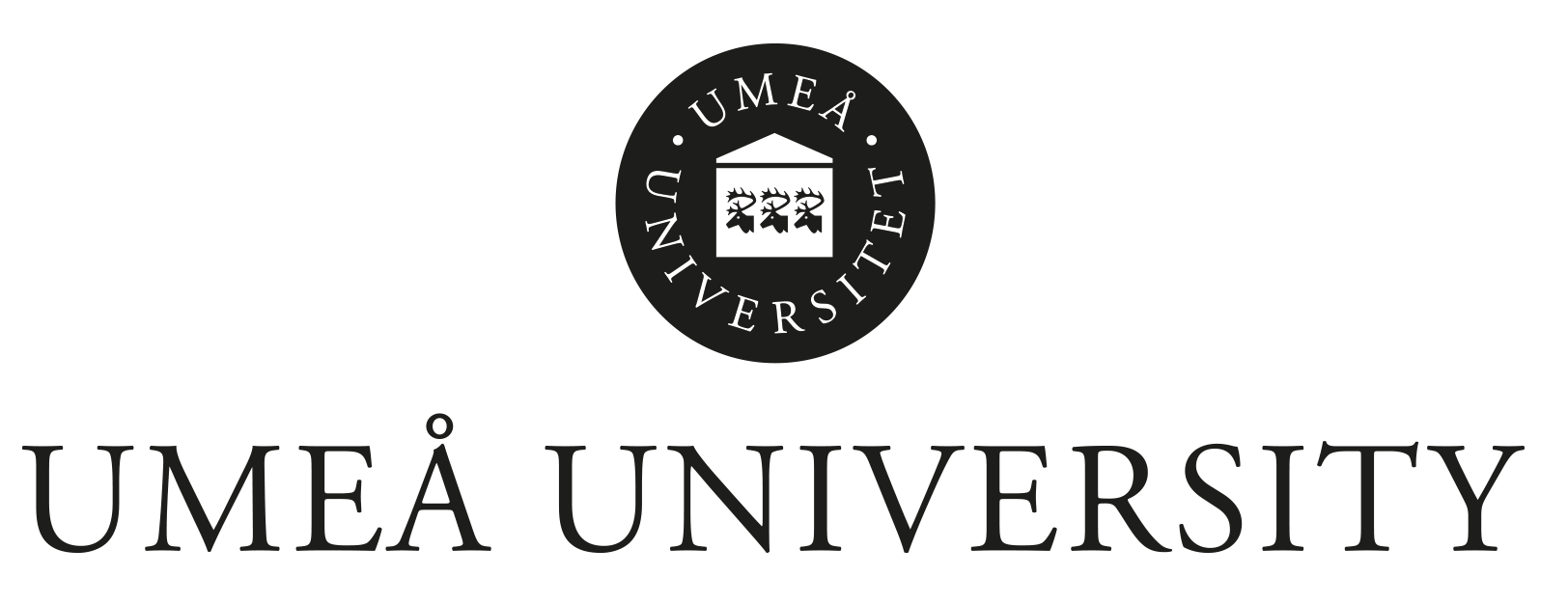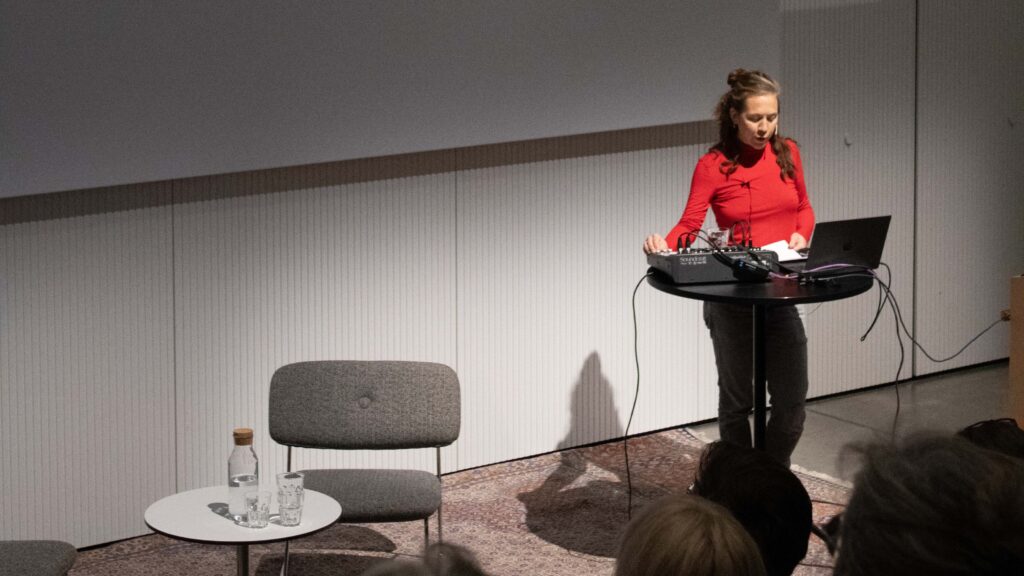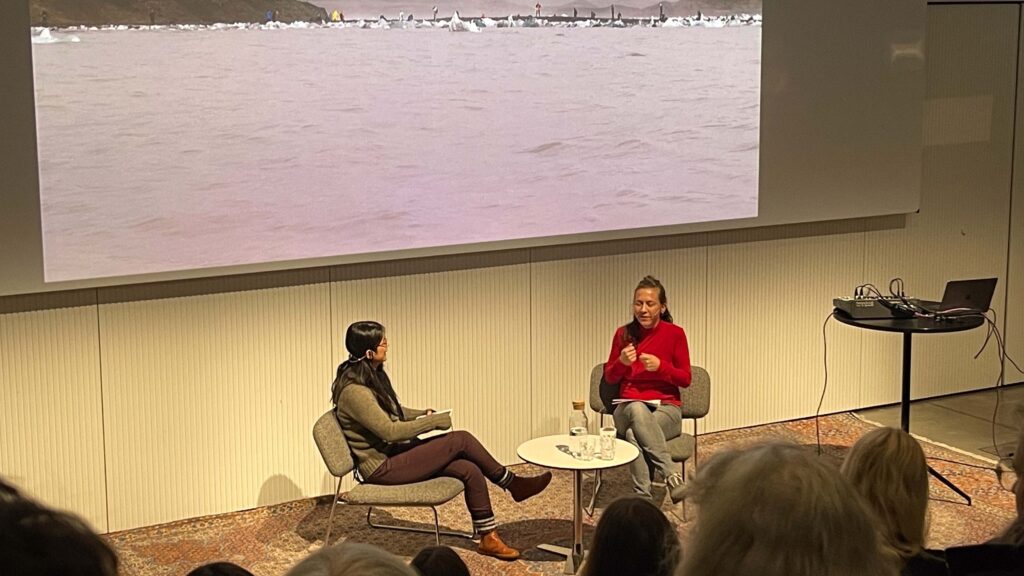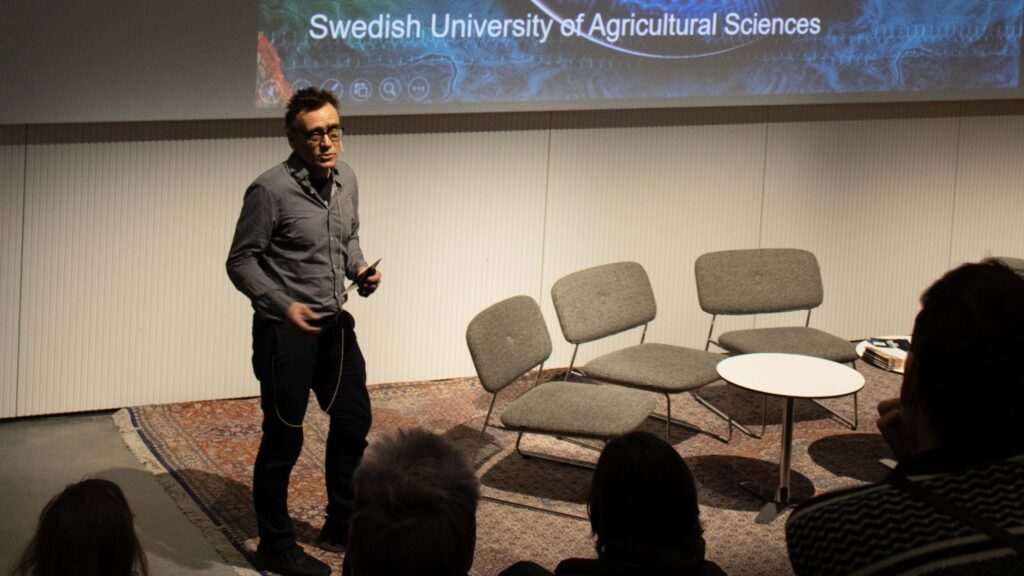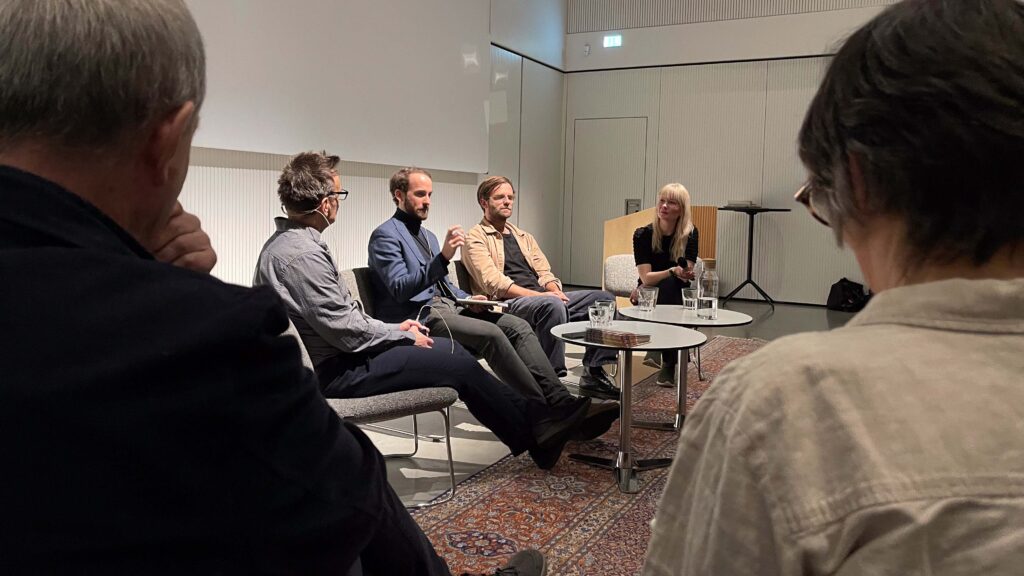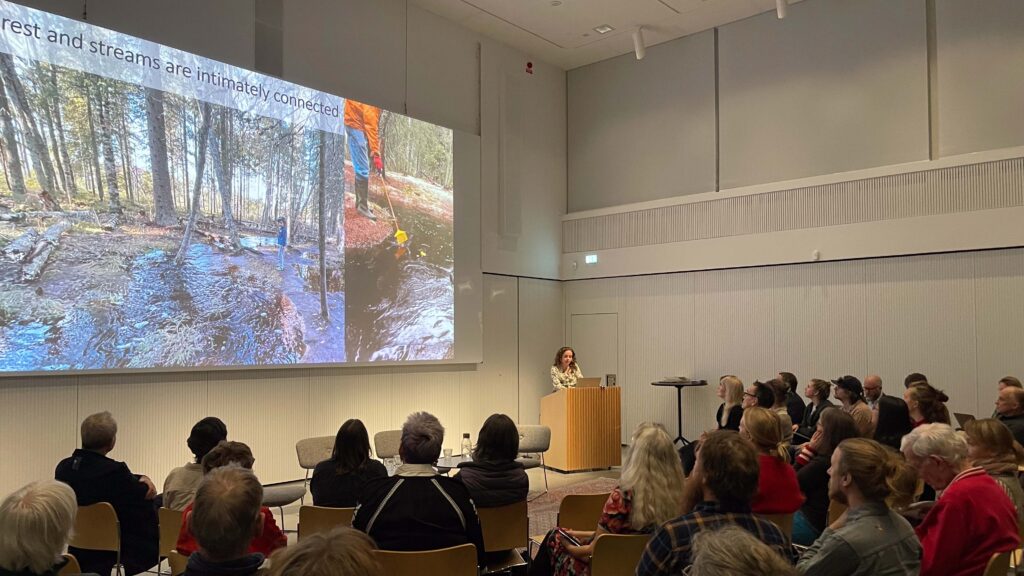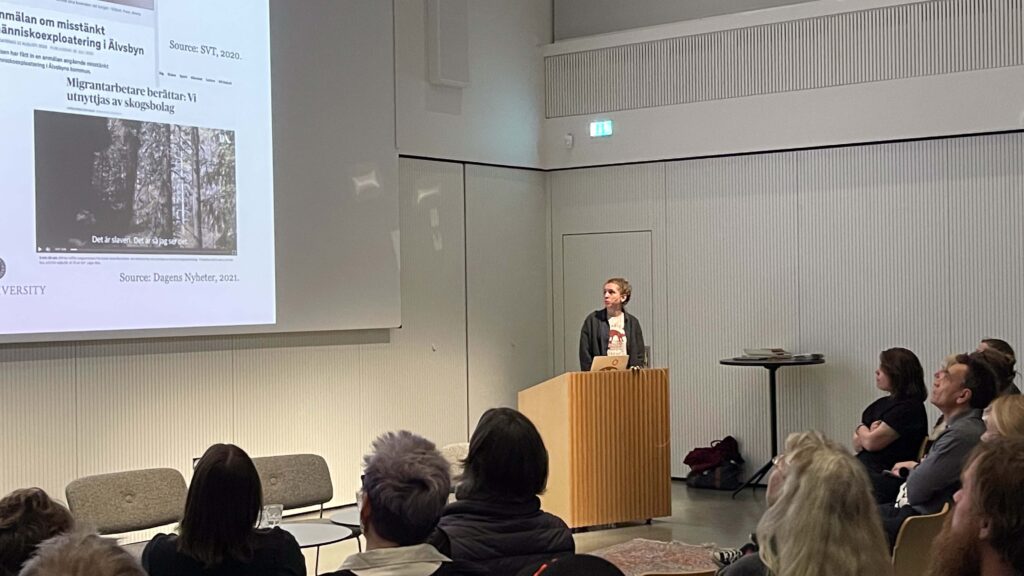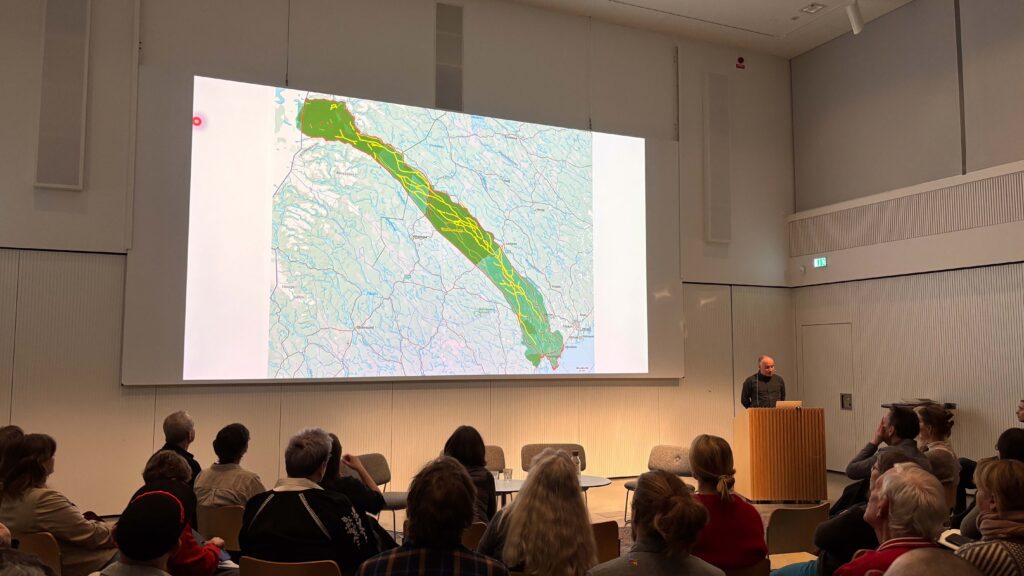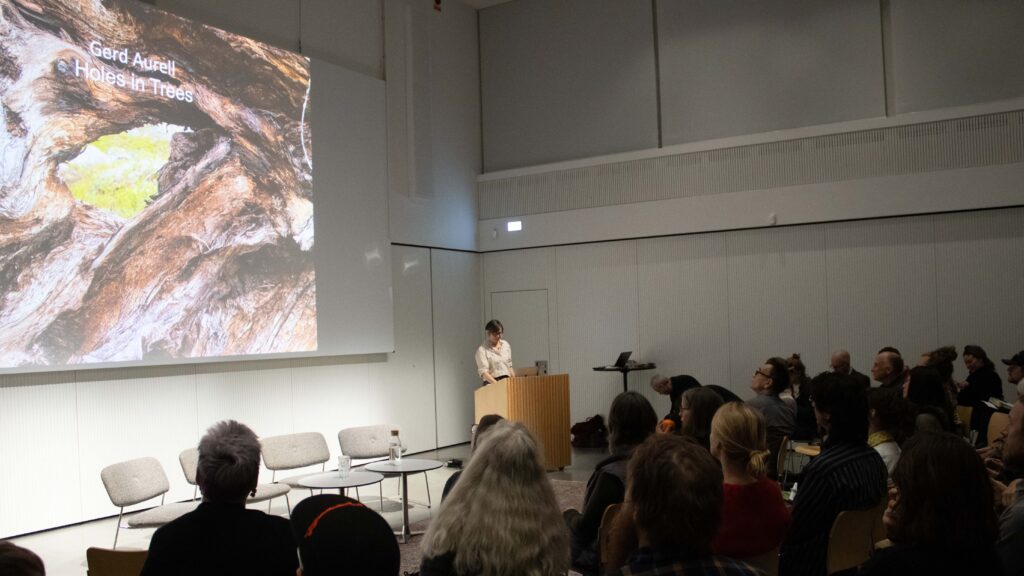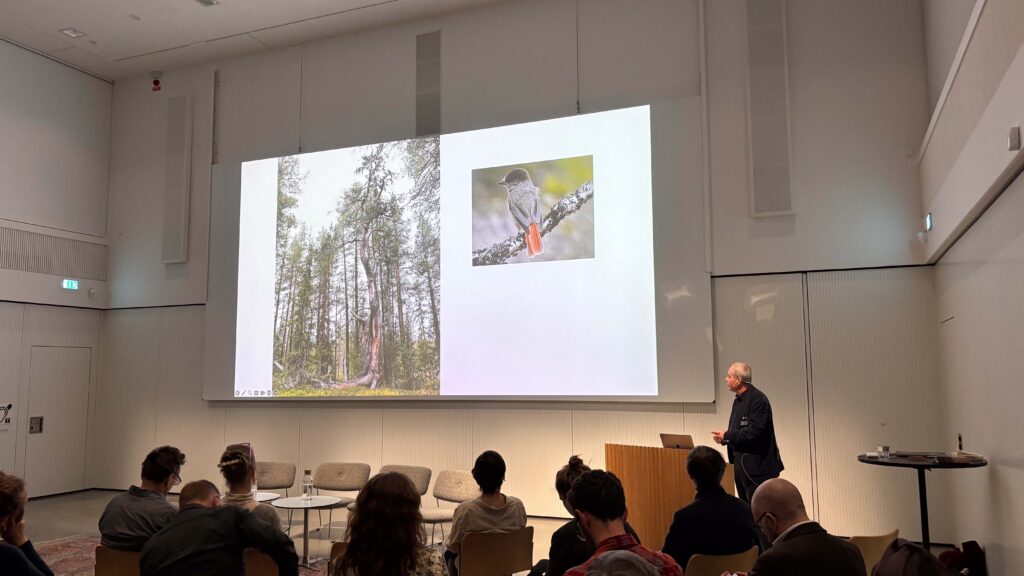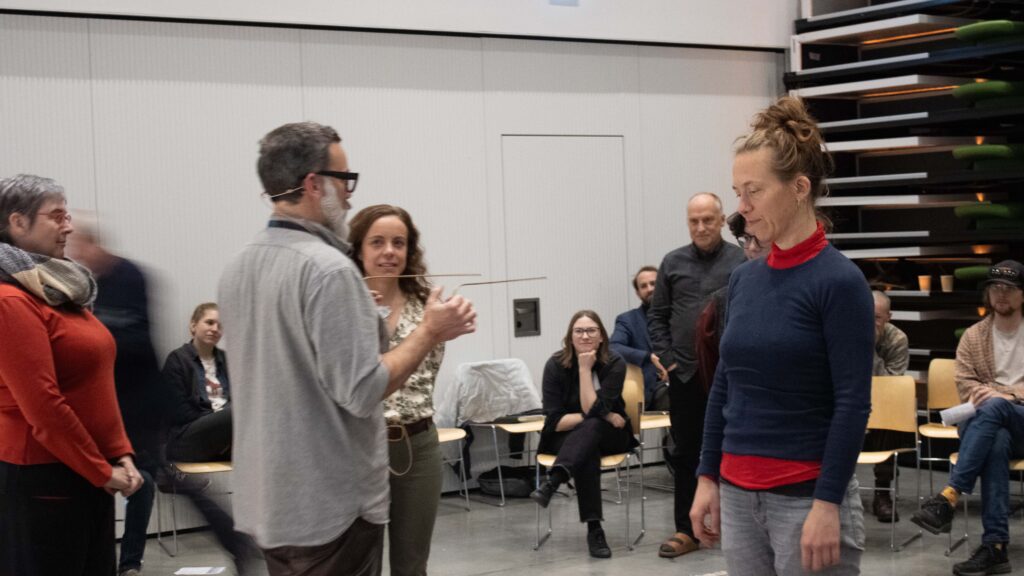‘Ensayo de cuna a Guataúba // Rehearsing a lullaby to the herald of woe’ (TBD) by Luis Berríos Negrón with Félix Becker, Randi Kjær, and the Umeå Barockkör.
The event is limited to 30 guests and will start punctually at 12:30. Please register at: https://forms.office.com/e/2NWVUY2mYd
This performance is an unrehearsed, experimental work that is part of the postdoctoral research project ‘Of tree nurseries remediating the colonial memory of landscapes’ (2023-24) by UmArts Research Fellow, Luis Berríos Negrón. Leaning on his arts and decolonial research, Luis has invited his previous Copenhagen-based collaborators Félix Becker and Randi Kjær to contribute their sound art and activist practices. Additionally, Luis has invited the Umeå Barockkör to perform in this novel collaboration. The choir, directed by Esther von Schoenberg, describe their participation as “an immersive, experimental choir performance along Luis Berríos Negrón.” This performance will augment perspectival agencies and turns, to address the form and force of contradictions that characterize global warming, as well as the broadening chasm between plantations and forests. In all, and stemming from the recent colloquium at Bildmuseet, Luis aims to further explore modes of research representation through the performance.
The performance is the first of two public events supported by Future Forests’ seed funding, both complementing his postdoctoral work as UmArts Research Fellow in Art and Architecture in partnership with Umeå School of Architecture and Bildmuseet.
Umeå Barockkör is a diverse and energetic choir of singers with a passion for exploring baroque music. They perform music from the Renaissance to the Romantic period, often with theatrical elements. Choir director Esther von Schoenberg is a classical singer and vocal pedagogue specialising in the baroque.
Randi Kjær, Copenhagen-based artist – mask maker, performer and author, evolving the project Creatures and Messengers – working in the field of activism, rituals, shadows, visual rhetoric, the non-human world and planetary awareness. Holds a Bachelor of Arts in Rhetoric.
Felix Becker, Copenhagen based cross disciplinary developer of context customised projects. He works on ngo curated interventions and processes, evolving (un)sustainable local cultures. Holder of MA in edu. Psychology in addition to music & performance studies.
Luis Berríos Negrón is a Puerto Rican environmental artist and experimental architect working with decolonising forms and forces of global warming. He is Associate Professor at the School of Architecture, as well as Research Fellow and chair of the Geopolitics of the Forests Group at UmArts.
